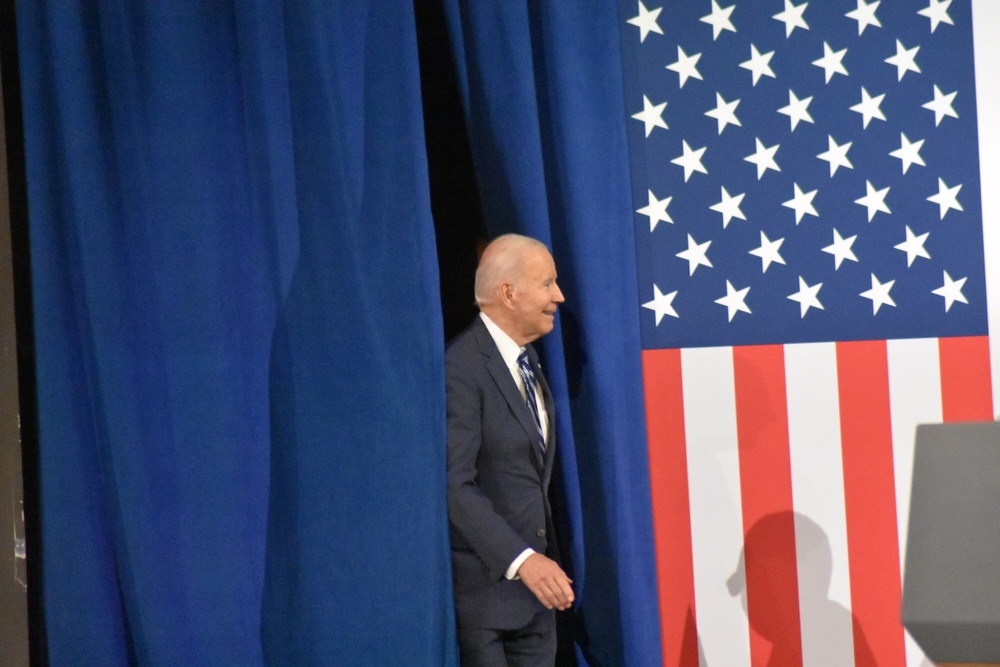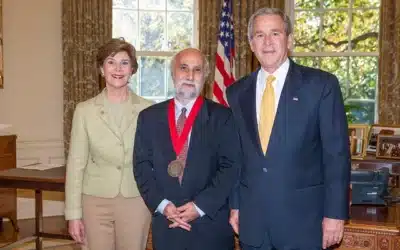After a disastrous debate performance two weeks ago and a weak damage-control interview last Friday, it’s finally become clear to almost everyone that President Joe Biden is not running the federal government.
Every four years, we’re supposed to pretend that a single individual, who we collectively choose at the ballot box, takes charge of the federal government and acts as we would to address the problems we face at home and abroad.
Biden’s inability to get through a debate and a sit-down interview without issues shatters the illusion that he is the one running things in Washington and across America’s globe-spanning sphere of influence.
So, if Biden is not actually running the government, who is?
There are, of course, the people around Biden. Some of his family members—like his wife, Jill Biden, and son, Hunter Biden—have been especially close by these last weeks as the president weathers the debate fallout. There’s also Biden’s closest advisors and political confidants like Mike Donilon, Ron Klain, Anita Dunn, and Ted Kaufman, who have been at the president’s side since he decided to run in 2020. Finally, there’s the White House staff who does much, if not all, of the day-to-day work.
But this group makes up only a small part of the broader power structure in Washington. To understand where federal power truly lies, we have to zoom out.
The political class in America is made up of countless organizations, departments, and factions. However, four unique groups can be defined.
First are the politicians and all those who are appointed by politicians. Think of presidents, senators, and representatives, but also cabinet members, ambassadors, and federal judges. These are many of the most-visible members of the political class. They’re who people picture when they think of American politics.
Second, there are all the unelected bureaucrats who make up the permanent, administrative components of the federal government. Most of them can be found in the dozens of executive agencies located in and around Washington, DC. Where the first group is made up of a couple thousand people, the second group accounts for close to three million. It’s the bulk of the federal government.
The third group is what we can call the official or “court” intellectuals. These are the “experts” in academia and at think tanks, as well as the “journalists” at the most prominent media organizations, who excuse and justify the actions and ambitions of the rest of the political class.
As Murray Rothbard explained in the third chapter of Anatomy of the State, political authorities have always relied on intellectuals to affirm the state’s legitimacy in the minds of the broader population. Intellectuals, who are often frustrated with how little people are willing to pay for their intellectual services, are easily lured into serving the state’s interest in exchange for official recognition, access, and tax dollars.
The fourth and final group are the plutocrats. They are the people and firms who owe their profits and wealth to the actions of the federal government and who lobby and pay to use government power to line their pockets. Think of the heads of the big banks or the weapons companies that supply Washington’s war machine.
These four groups form the coalition that makes up the political class. The “establishment” simply refers to the established, or current, political class. And, together, this coalition works to empower and enrich themselves at the expense of everyone else.
Court intellectuals use their establishment-sanctioned “expertise” to argue that society’s problems must be solved with government interventions. Politicians offer to enact these interventions in exchange for votes and donations. Plutocrats work to warp the interventions to their own benefit and then lobby and pay politicians to legislate even more lucrative interventions. After they are enacted, the easily predicted bad consequences of the interventions are used by court intellectuals and politicians to justify even more interventions.
Meanwhile, the bureaucratic group gains jobs, money, and power that it works with court intellectuals to protect and expand. The ever-growing interventions build up more government power that is then offered up to interested plutocratic buyers. All the while, politicians put on their sham fights with each other over minor policy differences along with their electoral and legislative rituals to obscure the scam and to keep us all believing that we live in a representative democratic republic.
That is the cycle churning in Washington, DC. The fact that the president is cognitively impaired is essentially irrelevant.
That is unless it begins to wake the American public up to the fact that the government does not work for us like we were all taught it does in elementary school. But until then, the churn continues.
This article was originally featured at the Ludwig von Mises Institute and is republished with permission.































